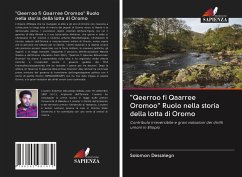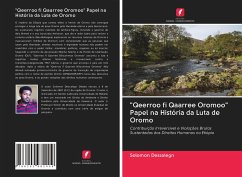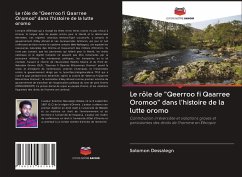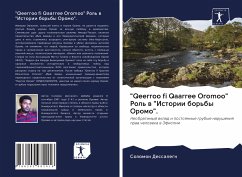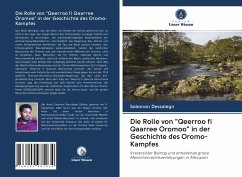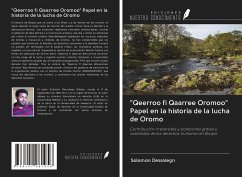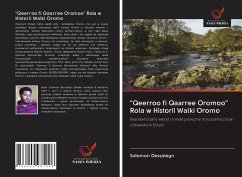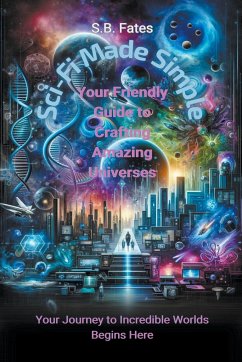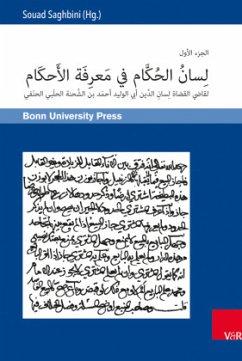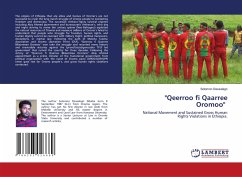
"Qeerroo fi Qaarree Oromoo"
National Movement and Sustained Gross Human Rights Violations in Ethiopia.
Versandkostenfrei!
Versandfertig in 6-10 Tagen
36,99 €
inkl. MwSt.

PAYBACK Punkte
18 °P sammeln!
The empire of Ethiopia that ate elites and heroes of Oromo's are not successful to crush the long march struggle of Oromo people to everlasting freedom and democracy. The successive Amhara-Tigray colonial regimes including Abiy Ahmed government and bureaucratic Amharan's, who day and night striving to revive the unitary system (Neo-Nafxagna) exploited the natural resources of Oromia and massacre millions of Oromo's failed to understand that people who struggle for freedom, human rights, and human dignity cannot be reversed with military might, political maneuvers, deceptions, or martial law. F...
The empire of Ethiopia that ate elites and heroes of Oromo's are not successful to crush the long march struggle of Oromo people to everlasting freedom and democracy. The successive Amhara-Tigray colonial regimes including Abiy Ahmed government and bureaucratic Amharan's, who day and night striving to revive the unitary system (Neo-Nafxagna) exploited the natural resources of Oromia and massacre millions of Oromo's failed to understand that people who struggle for freedom, human rights, and human dignity cannot be reversed with military might, political maneuvers, deceptions, or martial law. Following the path of Matcha Tulama Association and Oromo Liberation Front (OLF), "Qeerroo fi Qaarree Bilisummaa Oromoo" over take the struggle and recorded many historic and irreversible victories against the tyrant/fascist/genocider TPLF led government that ruined the country for three decades. Following the victory of "Qeerroo fi Qaarree Bilisummaa Oromoo" Abiy Ahmed appointment as a primeminister of the transitional government from political organization with the name of Oromo party (OPDO/ODP/OPP) never gave rest for Oromo people's, and gross human rights violations continued.




